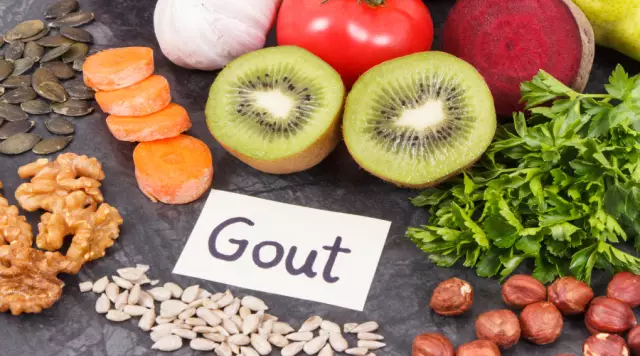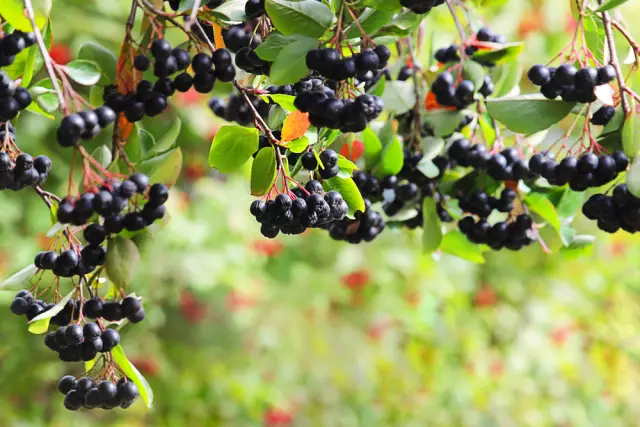- Author Rachel Wainwright wainwright@abchealthonline.com.
- Public 2023-12-15 07:39.
- Last modified 2025-11-02 20:14.
Diet for gout

Diet for gout is an important treatment for eliminating the main symptoms of the disease and making remission periods long enough.
Features of the diet for gout
A diet for gout should be followed to prevent disease progression and flare-ups that seriously worsen patients. Diet No. 6 is aimed at normalizing the metabolism of purines and preventing the formation of salt deposits.
If you follow a diet, uric acid is produced in smaller quantities and does not alkalize urine. It is necessary to make the right diet and eat regularly, but without overeating or drastic weight loss.
With a diet, uric acid does not cause stone formation and is excreted from the body quickly enough.
During a diet for gout, it is necessary to drink a large amount of water every day, as well as broths of rose hips, compotes, green tea and fruit drinks.
The use of meat products, starchy foods, fish, mushroom broths, offal, sauces and fatty foods should be limited, and small amounts of cheese and cheese products, figs, cocoa, grapes, coffee and chocolate should be used.
In gout, diet and treatment are closely interrelated, as without proper diet, there will be no significant results of therapeutic therapy. It is necessary to completely exclude canned fish, caviar, legumes, spices and alcoholic beverages from the diet.
The daily diet should consist of fractional meals with small portions (3-4 times a day). Regular nutrition, consisting of light dietary products, will eliminate the occurrence of exacerbations of gout associated with a sharp increase in the concentration of puric acid in the blood.
The correct diet for gout will gradually reduce weight by 3-5 kg, but at the same time get enough fluid for the body and remove harmful urates from it.
Diet menu and recipes for gout
For gout, diet and treatment should be based on a vegetarian diet of vegetables, fruits, and low-fat fermented milk products. The diet is recommended to include boiled rabbit, chicken and turkey meat, seafood, cottage cheese and pasta.
The daily menu should consist of a variety of vegetables, including cabbage, carrots, potatoes, courgettes, and cucumbers. Asparagus, herbs, radishes and bell peppers should be consumed in small amounts.
A diet for gout involves limiting or completely avoiding the use of salt, as well as spicy foods and seasonings. From sweet foods, you can sometimes use marshmallow, marshmallow and marmalade.
Most preferred for consumption are fruits and nuts, including pears, apricots, almonds, oranges, plums and apples.
When treating gout, you should adhere to useful recipes, which include lingonberry fruit drinks, cranberry mousses, cucumber juice, wheat bran with nuts. Nutritionists are allowed to use rye bread, olive oil and kefir.
During a diet for gout, it is necessary to spend regular fasting days, eat vegetable salads, low-fat cottage cheese, fruit desserts, and also drink various fruit juices and compotes.
Between fasting days, you can stick to milk and fish days. On a fish day, you need to eat boiled fish, fish soup, fish cakes and meatballs, and on a milky day, you should eat kefir, skim milk, cottage cheese and yoghurts.
For gout, steamed and oven-baked dishes are preferred because they do not cause purine flares.
To achieve a high therapeutic effect, nutritionists recommend regular exercise, walking, swimming and massage.
Found a mistake in the text? Select it and press Ctrl + Enter.






